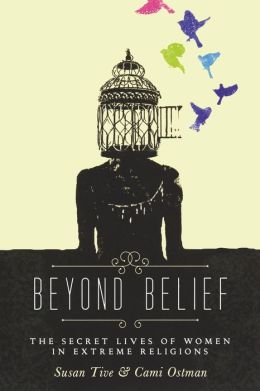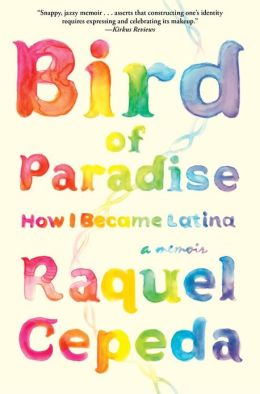Before I was a feminist, I was a womanist. I wish the definitions were interchangeable, but they're still not...for the same reasons it's impossible to be colorblind even though the intention is nice.
I wrote a little bit about this for
Click: When We Knew We Were Feminists, but when I read Alice Walker's collection,
In Search of Our Mothers' Gardens and I read her definition of womanism, it seemed to include me in a way that definitions of feminism did not. She
explained a vision of women's equality that was more holistic and appropriate for me that wasn't incorporated in outdated understandings of what it meant to be a woman:
Alice Walker’s Definition of a “Womanist” from In Search of Our Mothers’ Gardens: Womanist Prose Copyright 1983.
WOMANIST
1. From womanish. (Opp. of “girlish,”
i.e. frivolous, irresponsible, not serious.) A black feminist or
feminist of color. From the black folk expression of mothers to female
children, “you acting womanish,” i.e., like a woman. Usually referring
to outrageous, audacious, courageous or willful behavior.
Wanting to know more and in greater depth than is considered “good” for
one. Interested in grown up doings. Acting grown up. Being grown up.
Interchangeable with another black folk expression: “You trying to be
grown.” Responsible. In charge. Serious.
2. Also: A
woman who loves other women, sexually and/or nonsexually. Appreciates
and prefers women’s culture, women’s emotional flexibility (values tears
as natural counterbalance of laughter), and women’s strength.
Sometimes loves individual men, sexually and/or nonsexually. Committed
to survival and wholeness of entire people, male and female. Not
a separatist, except periodically, for health. Traditionally a
universalist, as in: “Mama, why are we brown, pink, and yellow, and our
cousins are white, beige and black?” Ans. “Well, you know the colored
race is just like a flower garden, with every color flower
represented.” Traditionally capable, as in: “Mama, I’m walking to
Canada and I’m taking you and a bunch of other slaves with me.” Reply:
“It wouldn’t be the first time.”
3. Loves music. Loves dance. Loves the moon. Loves the Spirit. Loves love and food and roundness. Loves struggle. Loves the Folk. Loves herself. Regardless.
4. Womanist is to feminist as purple is to lavender.
I was thinking about this as I noted coverage of the 50th anniversary of the publication of Betty Friedan's
The Feminine Mystique. I haven't read it, which I sometimes feel feminist guilt about, but I've noted that fair-minded feminists who've read it note that it leaves out my main demographic -African American women and working class women - so I'll probably never get around to it.
Privilege is a hard thing to fight against. When you have it, you want to keep it. It's like a cozy blanket you've had forever. This is what I imagine, anyway. But for those of us who don't cling to privilege, or cling to different kinds of privileges, we have different sources of inspiration.
Mine have been the following:
Homegirls: A Black Feminist Anthology (edited by Barbara Smith)
I found a copy, maybe a first edition, somewhere and I have hoarded it ever since. This was the first time I saw a collection of like-minded women from a generation or so before me in one collection. It was transformative to see that it was possible, even though the Kitchen Table Press was no more by the time I first read it. So many of my heroes are contributors that I can't mention them all - Toni Cade Bambara, Audre Lorde, Barbara Smith and June Jordan among them.
This Bridge Called My Back: Radical Writings by Women of Color (edited by Gloria Anzaldua and Cherrie Moraga)
Aside from a James Baldwin collection I mention below, back when I would permanently borrow titles (better known as stealing, though I'm ashamed of it now) the only collection I remember being so absorbed in that I felt like I needed it by my side all the time was This Bridge Called My Back.
(I wrote for Warscapes
on the importance of Gloria Anzaldua to me as a writer and kindred spirit on the page.)
The Price of the Ticket (A Collection of James Baldwin's Nonfiction)
Sometimes people call me brave on the page, which I am sheepish about, in part, because my first writing mentor was James Baldwin. I have always been and will always be indebted to him for his honesty, his wit, his beauty -- the way he found elegant ways to write difficult truths.
I found this collection in the school library of my middle school and never let it go. Because I was in 7th or 8th grade when I first started reading this book, I did not understand most of what Baldwin was writing or saying. But it was the power of his writing that gave me something to aspire to, to say nothing of the political implications of his position as a gay preacher's son down in Harlem, fighting for a space to simply be a writer instead of a black writer, a black gay writer, or name the adjectives.
Love Poems by Nikki Giovanni
The young romantic in me adored these poems, but I also appreciated Nikki Giovanni's embrace of hip hop as poetry. She was the first poet outside of my generation to write a poem for Tupac Shakur, for instance (as far as I know.) I know most people think of Beat poets as white and centered around Allen Ginsburg, but for me, Nikki Giovanni is our generation's Beat poet - it's just a hip hop beat that she writes too. She gave me permission to write free verse and to be eccentric and funky on the page in a way that few other poets have and do.
For Colored Girls Who Have Considered Suicide When the Rainbow was Enuf by Ntozake Shange
I was an actress in high school. In some ways, I was an actress before that, but I really flourished as an actress and a would-be director when I was at boarding school. We didn't have enough women of color to play all the roles, but our white feminist friends performed some of the roles beautifully during our production of this play. To find god in oneself is a still a revolutionary act, I think, which is why this remains a classic. (You can skip the movie version, as far as I'm concerned, and you probably should.) [I also fell in love with her poetry in
The Love Space Demands, and her novel,
Sassafrass, Cypress and Indigo.]
Mama Day by Gloria Naylor
While I was deeply affected by The Women of Brewster Place, which was a mini-series on ABC when I was a little girl, the mysticism and magic in Mama Day resonated with me on a different level. The writing was vivid, searing and real in a way that few things I read had been. It was nice to read about Southern ways that weren't strictly Christian, and to see a novelist tackle the spiritual ways of a black family in an unconventional way that wasn't necessarily science fiction.
The insinuation related to the omission of books written by and for womanists during women's history month is that they are somehow not quality or not numerous enough, but this blog post could go on forever. Critical to my development as a womanist, intellectual and writer were titles like bell hooks'
Sisters of the Yam, Audre Lorde's
Zami: A New Spelling of My Name and
Sister Outsider, along with her poetry collection,
The Black Unicorn. It is impossible to delineate and name all of the ways Toni Morrison impacted my imagination as a young womanist and still does, but so, too, did writers like Evelyn C. White, Margaret Alexander, Shay Youngblood and Jamaica Kincaid.

